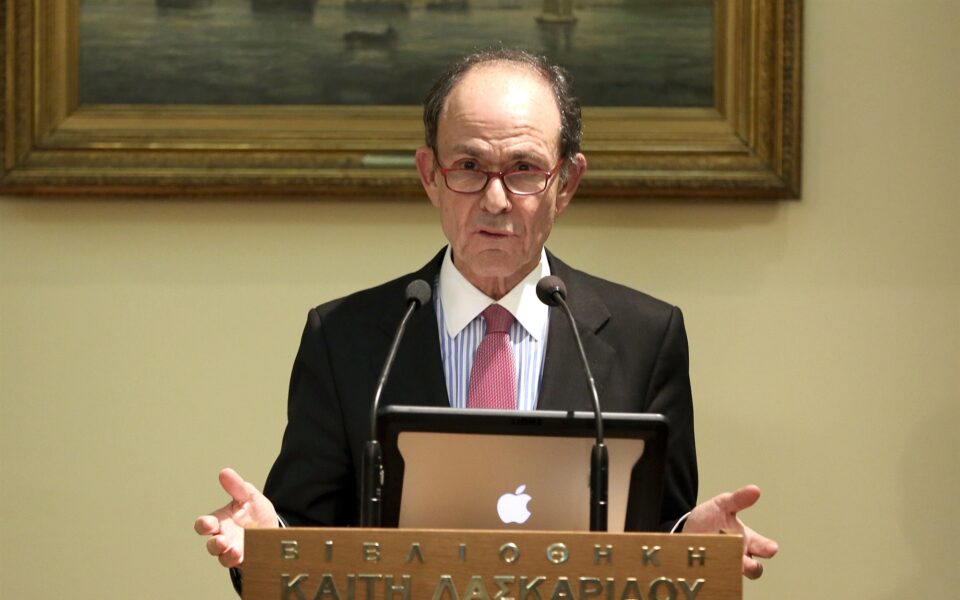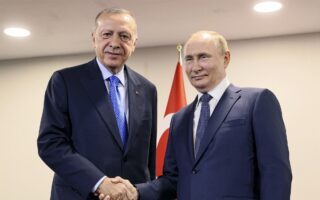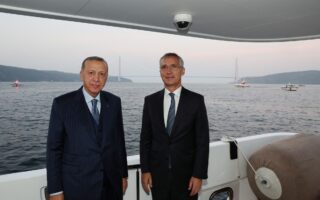Learning from a top ambassador

Foreign policy epitomizes the will, determination and clout of a state in the international sphere. Politicians possess the capacity for making decisions and diplomats have the privilege of paving the way toward those decisions. As important as it is, the work of diplomats does not capture public attention. Their responsibility is to fulfill delicate missions without an audience watching. Naturally, their expertise is edifying when it can be shared, most probably after their retirement.
This is the case with the new book by Ambassador (ad hon.) George Gennimatas who served in several diplomatic posts for a period of 40 years, inter alia as secretary-general at the Ministry of Foreign Affairs and the Presidency of Greece. Having chosen the title “History Can Be Written Even with a Borrowed Pen,” Gennimatas narrates stories from his career in different cities, and at different stages. Personal memories are accompanied with a deep knowledge of the field. This synthesis helps readers understand complex affairs in a manner that is readable and pleasant.
Diplomats ought to solve technical and bureaucratic issues with the same efficiency as they handle themes of national interest. Gennimatas explains how this balance could be struck by giving examples. In one of his night shifts in 1972, he took the initiative of giving flight permission to a French fighter under strict time pressure. In tandem, in a 2006 Ankara meeting organized by the then prime minister, Recep Tayyip Erdogan, in honor of European ambassadors, he didn’t hesitate to set the record straight about freedom of religion, when he referred to existing restrictions that apply for the election of the ecumenical patriarch.
From an international relations prism, Gennimatas’ account provides insights into the dissolution of the Soviet Union, the Middle East and Turkey. But diplomatic lessons go beyond this. Gennimatas touches upon thorns such as the Turkish casus belli of 1995, as well as the frequent “innocent” passage of Turkish ships in Greece’s territorial waters and provides well-documented responses about a legal and political way forward. Also, he analyzes aspects of Greece’s strategy to be become a non-permanent member of the UN Security Council in 2005-06, a discussion that is relevant in the interest of the country to win this seat again 20 years later.
Last but not least, Gennimatas offers his view about how Greece’s national positions might be better promoted on the international stage. He disagrees with the usage of high-sounding lemmas, and stereotypical expressions. By contrast, he opts for the formulation of coherent and substantial demarches that are likely to be persuasive. This argument currently finds resonance not only in Greece’s diplomatic practices but also its public communication tactics.
Dr George N. Tzogopoulos is a lecturer at the European Institute of Nice (CIFE), and a senior fellow at the Hellenic Foundation for European and Foreign Policy (ELIAMEP) and at the Begin Sadat Center for Strategic Studies in Israel.





